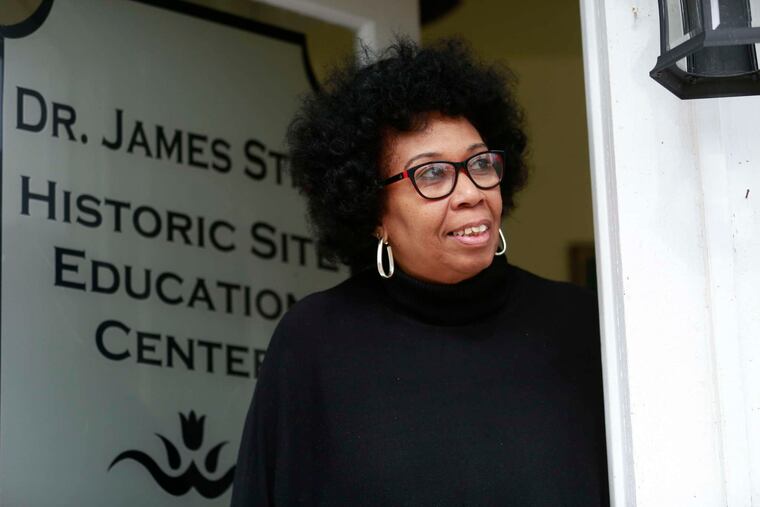Still famous after all these years
The onetime office of James Still, the homeopath known as the "Black Doctor of the Pines," sits back from Church Road in Medford. It's a rundown reminder of the history that occurred in this now-faded building on the edge of New Jersey's Pine Barrens.

The onetime office of James Still, the homeopath known as the "Black Doctor of the Pines," sits back from Church Road in Medford. It's a rundown reminder of the history that occurred in this now-faded building on the edge of New Jersey's Pine Barrens.
With peeling paint and boarded-up windows, the historic site where Still, the self-educated son of former slaves, treated patients and mixed serums in the 1800s, needs funding for a major face-lift.
So on Saturday, descendants of the herbal healer who became one of the largest property owners in his community, guided visitors through the office to raise awareness about the site and the man whose contributions to natural medicine turned it into a landmark.
"He made an impact here, and I don't think people understand that," said Carol Marshall Douglas, of Mount Laurel, Still's great-great-great-niece. "People just drive by."
In the late 19th century, people traveled across the region to visit the self-taught healer, who trained by reading books on the medicinal powers of plants and learned curative techniques from the Leni-Lenape Indians, who were his neighbors.
Though he was part of an accomplished family (the abolitionist William Still, his brother, is known as the Father of the Underground Railroad), James Still's autobiography was published in 1877 to little fanfare.
"People didn't think a lot of Dr. Still because he was African American," said Kathryn Gaines, Still's great-great-granddaughter, as she showed visitors a room made up to look the way it did in Still's day. "But he had knowledge that they didn't have."
For years, Still's descendants have worked to make sure their ancestor's historic contributions are remembered.
In 2005, Valerie Still, a great-great-granddaughter, discovered that the former office was for sale and alerted state officials. The New Jersey Department of Environmental Protection, recognizing its historic value, purchased it and a neighboring farm.
The farmhouse was turned into the Dr. James Still Historic Office Site and Education Center, which hosts tours, lectures, and workshops.
State officials planned to renovate the dilapidated office building, but Hurricane Sandy drained the government's financial resources.
Now, family members and education center staff are again stepping into the breach.
Earlier this month, after some prodding from Still family members, Medford officials voted to rename the township's Cranberry Park in honor of Still, who died in 1882. Artist Susan Clinard offered to sculpt a bronze bust of the homeopath to be installed in the park.
Family members and supporters have started a campaign to raise the $5,000 needed for the bust, and plan to follow that effort with a capital drive to renovate the building.
"It would be wonderful to be able to hold bigger events, which would allow us to showcase the [renovated] office and the educational center," Douglas said.
Later this year, an archaeological dig and genealogical workshop will be added to the center's programming, said Samuel Still, a great-great-grandnephew, who is chairman of the center and a family historian.
On Saturday, visitor Henry Clark Whitman said he had driven by the center for years without noticing it.
"I never realized it was here," said Whitman, of Burlington Township, a retired chief master sergeant in the Air Force, who seemed delighted to have connected with local lore. He walked away calling Still "a Godsend."
610-313-8211